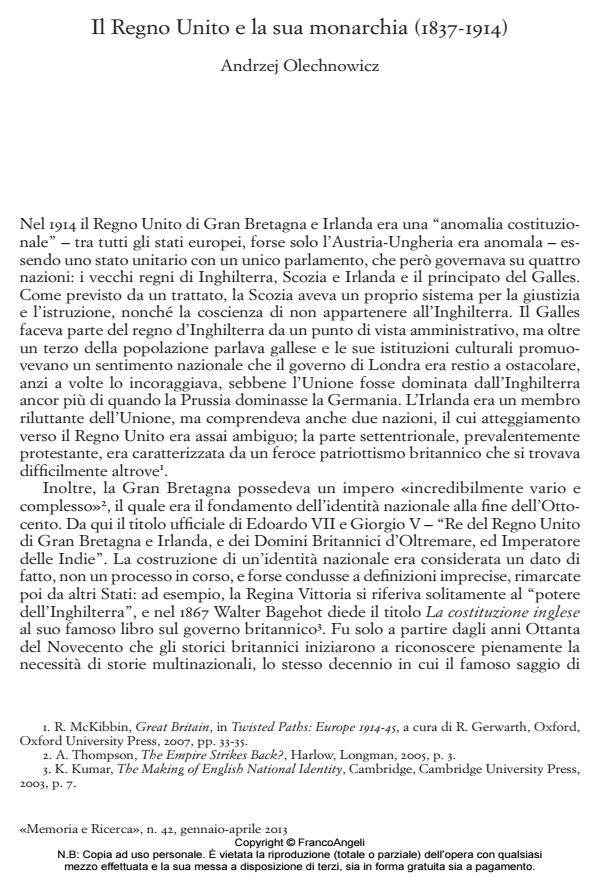The United Kingdom and its Monarchy (1837-1914)
Journal title MEMORIA E RICERCA
Author/s Andrzej Olechnowicz
Publishing Year 2013 Issue 2013/42
Language Italian Pages 17 P. 15-31 File size 134 KB
DOI 10.3280/MER2013-042003
DOI is like a bar code for intellectual property: to have more infomation
click here
Below, you can see the article first page
If you want to buy this article in PDF format, you can do it, following the instructions to buy download credits

FrancoAngeli is member of Publishers International Linking Association, Inc (PILA), a not-for-profit association which run the CrossRef service enabling links to and from online scholarly content.
The United Kingdom in 1914 was an oddity: a unitary state in which one parliament governed four nations. Yet the political challenges faced by the British monarchy were perhaps less serious than those faced by other European states. The widespread attachment to a ‘constitutional monarchy’ which reigned but did not rule meant that the monarch was accepted as standing outside partisan party politics, and ensured that periods of heightened party political division had little impact on the popular standing of the institution. Furthermore, nation-building seemed more an established fact, than an on-going process. The post-Victorian monarchy paid some attention to the four component parts of its realm; but even in Ireland the monarchy was not called upon to play a decisive role or to face a determined opposition. As an imperial monarchy it gave symbolic force to the idea of ‘the British Empire’. Finally, royal secretaries almost always succeeded in containing any ill-conceived personal initiatives by monarchs.
Keywords: Monarchy, United Kingdom, national identity, empire, constitutionalism, "common sense"
Andrzej Olechnowicz, Il Regno Unito e la sua monarchia (1837-1914) in "MEMORIA E RICERCA " 42/2013, pp 15-31, DOI: 10.3280/MER2013-042003